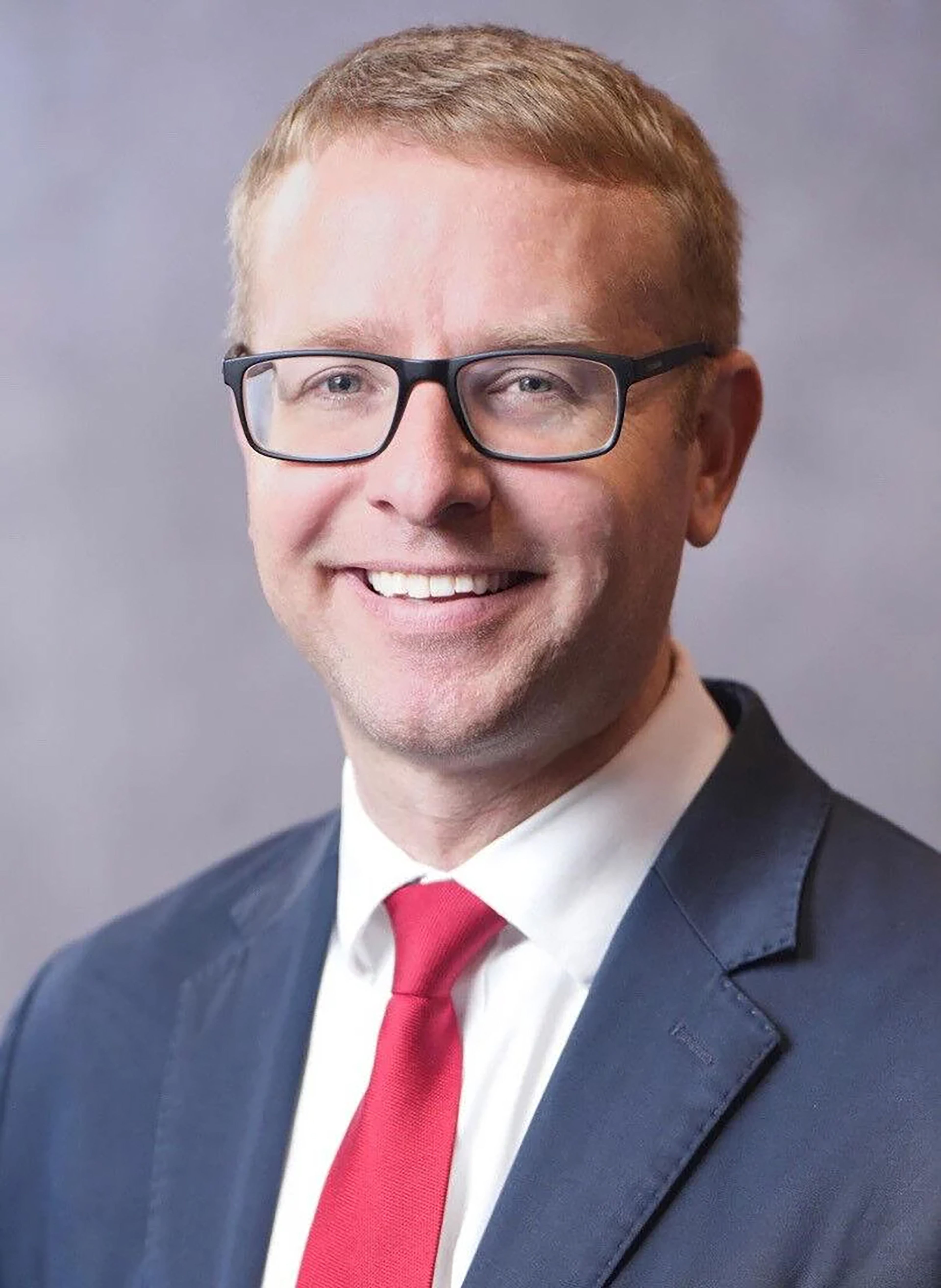Medicaid assistance program to expire amid suspected fraud
Health and Welfare asks Legislature to resurrect Family Personal Care Services with safeguards to prevent abuse
The Idaho Department of Health and Welfare is allowing to expire a small Medicaid program for family caregivers of children and adults with disabilities over suspected fraud and abuse, and it will be up to the Legislature to either resurrect the program with more safeguards or let it die.
Idaho Health and Welfare Director Alex Adams wrote a letter to House and Senate Health and Welfare Committee chairpersons earlier this month outlining concerns and stating the need for legislative approval to continue operating the program and to make any changes.
Adams also sent the letter to the co-chairpersons of the state budget-writing committee.
“It is our hope that program advocates and participants can work with the Legislature to determine which safeguards are appropriate to resolve the troubling issues we are seeing on the ground, recognizing the need for additional staff capacity if labor-intensive safeguards are selected,” Adams wrote in the Nov. 4 letter.
The part of the Family Personal Care Services program at issue was put in place during the pandemic to allow “legally responsible” parents and spouses to be paid for providing caregiving services to Medicaid patients. It was designed for people who didn’t want to risk having outside caregivers in their home and to address a shortage of direct care workers. Before the pandemic, these individuals could not be reimbursed by Medicaid.
There are limitations on what services can be paid to provide, including bathing, dressing, giving medication, mobility and using the toilet. Other domestic labor, like cleaning or doing laundry, cannot be done on-the-clock through this program.
Jeremy Maxand, executive director of Living Independence Network Corporation, or LINC, said the suspected fraud the agency highlighted in its letter was “disturbing.” LINC coordinates self-directed care aimed at adults with disabilities as well as other services to support independent living.
“It’s really frustrating, because it’s a service that is really important, not to millions of people, but if you’re the one in that situation, and that’s a system you could use, it’s a big freaking deal,” Maxand said.
Suspected fraud and abuse
Around 1,400 people are enrolled in the program, a jump from 546 in 2021.
It can be a needed service for those who require high levels of care and don’t have access to other home health care workers, Deputy Director of Medicaid Juliet Charron told reporters in a call on the issue.
Enrollment and costs of the program have spiked over the last couple of years, and the health department staff suspects this is because of misuse. The program has cost around $8 million so far in 2024, and was only allocated $4.2 million by the Legislature.
“The volume of confirmed and suspected cases is concerning,” Charron said.
The agency didn’t have a number of confirmed cases at the time of the press call Nov. 7.
In the letter, Adams wrote certain activities that raised alarms for fraud included claiming care for children but performing other activities at the same time, such as driving for a ride-share company; double- and triple-billing by billing for the care of multiple children simultaneously, which is not allowed; and using Medicaid as supplemental household income.
Staff had also observed parents, spouses and provider agencies “trading tips on how to seemingly exploit this program,” through activities such as sharing information on how to manipulate the medical assessment to maximize authorized hours of service paid by Medicaid, sharing eligibility paperwork, and advertising to employ parents to care for their children to incentivize parents who never previously had an interest in the services, the letter said.
The program is set to expire Jan. 31. In the meantime, the department is implementing additional oversight of the program for its final months, according to the letter.
The program’s benefits
Sharon Barber, the director of personal assistant services at LINC, said the organization has about six individuals utilizing the Family Personal Care Services program.
The people chose this option for a number of reasons, including living in a rural community with a lack of access to direct care workers. In 2023, the state Office of Performance Evaluations released a report detailing a significant shortfall of direct care workers in Idaho that was expected to triple over the next decade if actions weren’t taken, the Idaho Press previously reported.
In the letter, Adams wrote that recent actions — such as the Legislature increasing the reimbursement rate — have started to move the needle. The agency estimates the workforce, not including parents and spouses, in Idaho has grown by approximately 10% over the past two years.
Staff at LINC noted the workforce situation has gotten better, but the caregiving industry can still be volatile.
“A lot of treatment agencies don’t have reliable caregivers,” said Sarah Razer, personal assistant services relations specialist at LINC. “So even if they claim they can send someone out, it’s usually only for a short period of time before that person leaves because the pay isn’t enough, and then it leaves that person without care. Now, if their spouse can step in and care for them and get paid for it, that helps the patient.”
Another reason people utilize this option, is there are people who are new to navigating their disability and uncomfortable with a stranger performing some of the more intimate tasks associated with caregiving.
This is the case for at least one individual working with LINC, Razer said.
“He does care about random strangers seeing his parts, and his wife is providing that care, so he’s obviously more comfortable with that,” she said. “He doesn’t want random people providing that type of invasive care for him, and this was her primary source of income, this program, and now she has to go back into the workforce, and who is going to provide the care for him?”
The people who utilize these programs tend to require nursing-home levels of care, Barber said, which would be a lot more expensive to provide outside of the home in a facility.
Maxand said he hopes the legislators opt to tighten the program instead of letting it end.
“If we’re serious about supporting our families and creating resilient communities, we have to make sure these kinds of options remain available,” Maxand said. “It would be a shame that an administrative policy fix would not be the solution, and instead we would just get rid of the option wholesale. That seems like it would be a mistake.”
Next steps
A law passed last session requests the health department seek legislative approval on some Medicaid waivers, which are approvals the state program can seek from the federal Centers for Medicare & Medicaid Services in how the state administers its Medicaid program. The requirement stipulates approval is needed if the waiver will include additional spending.
Adams wrote that while this program may be considered grandfathered in, as it was in place before the law went into effect, staff think that its rising costs mean authorization appears to be needed before a new waiver could be sought.
The waiver the department is currently operating the program under is set to expire in March 2025, but the department is opting to end this portion of the program at the end of January 2025.
After Jan. 31, other family members or friends could still provide family caregiving services through Medicaid. The change only affects legally responsible parents or spouses.
If the Legislature votes to approve the program and provides an appropriation, then the agency can amend its existing waiver to include any added safeguards or other policy changes that lawmakers chose to add.
Senate Health and Welfare Committee Chair Julie VanOrden, R-Pingree, told the Idaho Press she is in favor of writing legislation that keeps the flexibility in the program up and running, but adding restrictions.
“It’s evident that there’s some problems with the program, and I think we need to address those before we move forward on anything,” VanOrden said. “I do know that there are families that need this.”
House Committee Chairperson John Vander Woude, R-Nampa, did not respond to requests for interviews by press time.
If approval is given, Charron said she anticipates it would be a matter of months to reinstate the program.
Adams said he hopes the letter is a “call to action” for stakeholders and lawmakers alike to find a solution to the suspected problems.
VanOrden said she hasn’t met with stakeholders yet but plans to. She said she doesn’t like ending the program, but thinks it’s necessary to put in safeguards.
“It feels like cutting people’s legs out, that’s not how I want them to feel,” she said. “I want them to know the reason why this is happening and that there has to be a path forward for the individuals that are willing to meet the parameters that we set up.”
Guido covers Idaho politics for the Lewiston Tribune, Moscow-Pullman Daily News and Idaho Press of Nampa. She may be contacted at lguido@idahopress.com and can be found on Twitter @EyeOnBoiseGuido.








